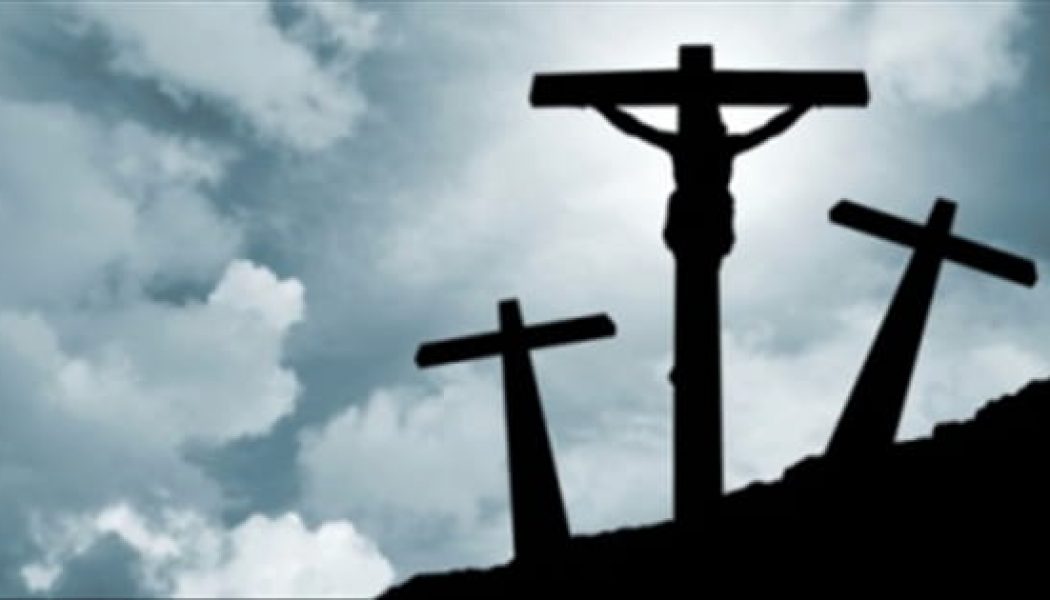fisher of men
Is the Doctrine of Justification Biblical?
What is Justification? As defined in the Baker’s Biblical Dictionary, Justification is the declaring of a person to be just or righteous. It is a legal term signifying acquittal, a fact that makes it unpalatable to many in our day. We tend to distrust legalism and thus we dismiss anything that savors of a legalistic approach. We should be clear that our hesitation was not shared by the biblical writers. In their day it was axiomatic that a wealthy and important citizen would not be treated in a law court in the same way as an insignificant person. Indeed this was sometimes written into the statutes and, for example, in the ancient Code of Hammurabi it is laid down that if a citizen knocked out the tooth of another citizen his own tooth should be knocked out. But if the victim was a v...
How Avoidance of Church Discipline Is Like Doctor Shopping
Law enforcement officials use the term “doctor shopping” to refer to the way those addicted to prescription pain medications seek to avert accountability. If you go to your doctor to ask for Vicodin, and your physician refuses to prescribe it, you are doctor shopping if you then seek out multiple doctors until you find the one who will prescribe the Vicodin. Sometimes an addict will have multiple doctors going at once, all prescribing different medicines, often those that are dangerous to mix. I’ve noticed the same thing going on when it comes to church accountability. The truth is, there’s a certain type of personality that doesn’t want accountability, but affirmation. If one wants to divorce someone one shouldn’t divorce or marry someone one shouldn’t marry or do something one shouldn’t ...
How Should You Pray When Wronged?
Vindication is something we all desire, because injustices are committed toward us in this life. On a lesser scale it could be a simple spat between spouses in which the one accuses the other of moving an item, when the other has evidence of things being very different. On a larger scale it could be that family promises were not kept, or lies and cover-ups had the wrong person thrown out of school, found innocent a criminal who harmed your loved one, or cost you an unwarranted demotion at work. In Psalms 26:1, one reads, “Vindicate Me, O Lord.” The word translated as “vindication” has judgment at its core. David is praying, “Judge me, O Lord. Look at the wicked and me, see that I have lived a life of integrity and depended on you without wavering.” David’s prayer reveals three things: 1.&n...
Why Are We Fascinated by Fear?
[Editor’s Note: this excerpt is taken from chapter 5 of Meaning at the Movies: Becoming a Discerning Viewer, by Grant Horner (Crossway Books).] Film, Fear, Pleasure Most people would not describe fear as a pleasant emotion. The experience of terror, of being threatened, doomed, or on the brink of feeling some terrible agony, is quite naturally a negative feeling. The purpose of fear is to serve as a warning. People do not send chocolates or flowers as a warning. A tiger does not purr before he attacks you, nor does your heart beat more slowly right before he eats you. So why is there a massive industry dedicated to the production of fear for pleasure? Scary movies, skydiving and bungee-jumping, haunted houses on Halloween, and horror novels combine to make a multibillion...
You Cannot “Do All Things” through Christ
You can’t actually “do all things” in Christ. Not the way you think you can anyway. I realize this sounds like sacrilege given the suburban spin we’ve put on this biblical expression, but it’s true. Paul did not intend some sort of personal triumphalism here. Flatly, the Apostle Paul couldn’t “do all things” either. Paul could not get out of prison – which is where he penned this verse (Philippians 4:13) – no matter how intensely he believed in Jesus. He was stuck there until God determined otherwise. But, he could “be imprisoned” in Christ who strengthened him to be imprisoned. Prison is such a good place to discover Christ’s sufficiency. The true meaning of “all things” might disappoint contemporary Christians. But, it shouldn’t. The actual point is even more glorious t...
“Control Over Your Life” Isn’t Possible
One day several years ago, I was wasting too much time on Facebook and took one of those silly psychological profile tests called “Which Cartoon Character Are You?” Cartoon characters are evidently great stereotypes for the different kinds of temperaments and personalities. So, I took the test. I wish I hadn’t. Because guess which cartoon character I am? Not the lovable Mickey Mouse. Not the wisecracking Bugs Bunny. Not the vociferous rooster, Foghorn Leghorn. Not the smart and speedy Roadrunner who always outwits Wile E. Coyote. No, my profile showed me to be Scrat, the ambitious but constantly frustrated acorn-obsessed saber-tooth squirrel from the Ice Age movies. Scrat? Seriously? What does that say about me? I think it says that my reach exceeds my grasp. That my best laid schem...
The Lottery Is a Suicidal Craze
“Americans spend about $60 billion on the lottery every year,” says Stephen Dubner, co-author of “Freakonomics.” “More than $500 per American household goes to playing the lottery.” (CBS This Morning) There are at least seven reasons you should not gamble with your money in this way — and should tell your congressmen not to support it. 1. It is spiritually suicidal. “Those who desire to get rich fall into temptation and a snare and many foolish and harmful desires which plunge men into ruin and destruction. . . They have pierced themselves with many a pang” (1 Timothy 6:7–10). 2. It is a kind of embezzlement. Managers don’t gamble with their Master’s money. All you have belongs to God. All of it. Faithful trustees may not gamble with a trust fund. They have no right. The parable of the tal...
Is Halloween Pagan in Origin?
Many Christians struggle to decide how (or if) to celebrate Halloween. After all, it is a holiday that seems to emphasize darkness, superstition and fear. Furthermore, there is the claim that the holiday is pagan and evil in origin – an assertion that simply is not true. Surprise! Halloween didn’t start off as a pagan holiday! Meaning of the Word Halloween The name Halloween is a blending of the words All Hallows’ and Even or E’en (referring to the evening before All Holies Day, or All Saints’ Day, which is November 1). The term hallow means “holy” – you may recall reciting it in the Lord’s Prayer, “Our Father who art in heaven, hallowed be thy name” (Matthew 6:9). Early in church history, Christians began to celebrate the “saints” (heroes of the faith),* and by the 7th century...
What Do the 7 Churches in Revelation Represent? Summaries and Explanations
The Book of Revelation addresses seven letters to seven churches in Asia Minor (modern-day Turkey) (Revelation 2-3). Each letter, as proclaimed by Jesus and recorded by John the Apostle, declares the triumphs and failings of the recipient churches and warns each congregation to repent. The advice in these letters is prophetic, forewarning present-day Christian communities of the snares that can lure us away from our faith. Who Wrote Revelation? Christian scholars from the second century to date have attributed the physical writing of Revelation to John the Apostle, son of Zebedee (Mark 3:17) and author of the Gospel and Epistles of John. Although John literally wrote Revelation, the Book makes it clear that the source of the revelations is Jesus (Revelation 1:1-2). In the first centur...
Hearing Politics a Lot at Church Lately?
To preach is a humble and holy task. Church attenders arrive with the assumption that what is said comes from the Bible. To cut and paste partisan talking-points or to substitute consistent exegesis with sample “election season” sermons is spiritual malpractice. Here are three important reasons why pastors shouldn’t preach politics in the pulpit: 1) Our Text Must Be the Word of God This sounds like a cliche, but it bears saying: faithful Bible preachers use the text of the Word of God as their source of preaching. Anything less is simply a speech, which may be inspirational, moral, or even Christian-themed. But if our basis is not the text, we’re not preaching. Sometimes a given text will make political or moral statements. For instance, i...
Character or Content: Which Matters Most?
With school having started again recently, my life is seemingly consumed with the topic. At home, we have a closet full of school supplies. My desk is covered with textbooks, notebooks, and grade books (metaphorically speaking). So, much of my conversation at this time of the year relates to students and school. Today, I want to reflect on the teachers. Specifically, I want to consider the Christian teacher and what he or she must do to do this task to the glory of God. Paul warned Timothy, “Pay close attention to yourself and to your teaching; persevere in these things, for as you do this you will ensure salvation both for yourself and for those who hear you” (1 Timothy 1:16). Too often teachers (and I include public, private, home, college, and Sunday School teachers in this categ...
Live with Passionate Aim
My quiet moment at an Alaskan lakeside was interrupted with the sounds of young boys as they rushed from a minivan to the side of the lake. They didn’t notice anyone was there as they looked for the small flat stones and began to hurl them across the water. I watched as the pebbles danced and made ripples that reached toward the mountain scene that was making the backdrop so beautiful. There were so many pebbles hitting at once that it looked like it was raining. I never learned the art of pebble-skipping, so I was amazed at how they had mastered the skill. As I reflected, God used these young men to show me a few things about the passionate aim God expects from us as leaders: (1) These boys were passionate. They knew what they wanted to do and they went for it. I thought about...























